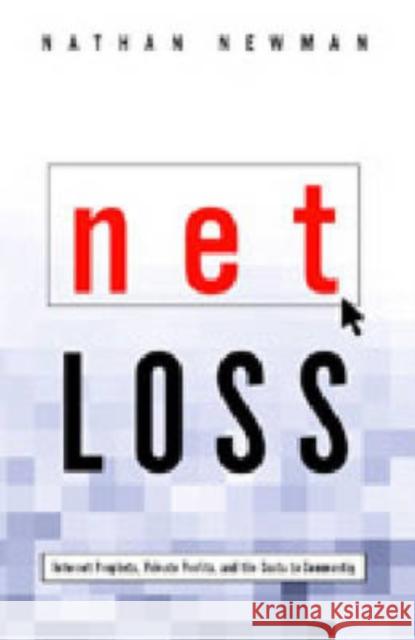Net Loss: Internet Prophets, Private Profits, and the Costs to Community » książka
Net Loss: Internet Prophets, Private Profits, and the Costs to Community
ISBN-13: 9780271022055 / Angielski / Miękka / 2002 / 399 str.
Net Loss: Internet Prophets, Private Profits, and the Costs to Community
ISBN-13: 9780271022055 / Angielski / Miękka / 2002 / 399 str.
(netto: 165,87 VAT: 5%)
Najniższa cena z 30 dni: 169,28
ok. 30 dni roboczych.
Darmowa dostawa!
How has the Internet been changing our lives, and how did these changes come about? Nathan Newman seeks the answers to these questions by studying the emergence of the Internet economy in Silicon Valley and the transformation of power relations it has brought about in our new information age. Net Loss is his effort to understand why technological innovation and growth have been accompanied by increasing economic inequality and a sense of political powerlessness among large sectors of the population. Newman first tells the story of the federal government's crucial role in the early development of the Internet, with the promotion of open computer standards and collaborative business practices that became the driving force of the Silicon Valley model. He then examines the complex dynamic of the process whereby regional economies have been changing as business alliances built around industries like the Internet replace the broader public investments that fueled regional growth in the past. A radical restructuring of once regionally focused industries like banking, electric utilities, and telephone companies is under way, with changes in federal regulation helping to undermine regional planning and the power of local community actors. The rise of global Internet commerce itself contributes to weakening the tax base of local governments, even as these governments increasingly use networked technology to market themselves and their citizens to global business, usually at the expense of all but their most elite residents. More optimistically, Newman sees an emerging countertrend of global use of the Internet by grassroots organizations, such as those in the antiglobalization movements, that may help to transcend this local powerlessness.











